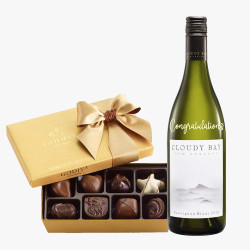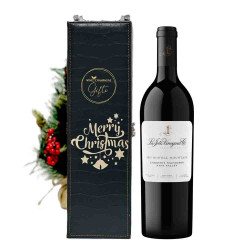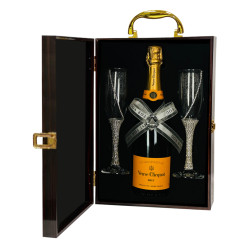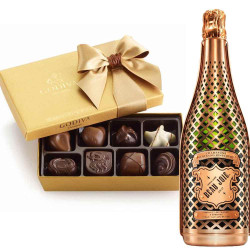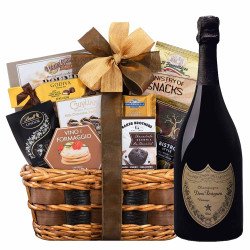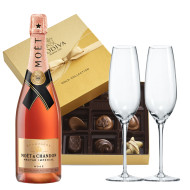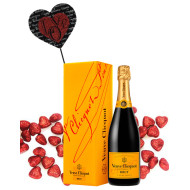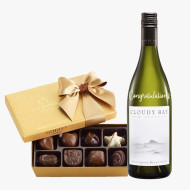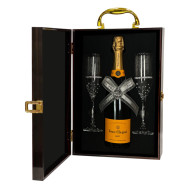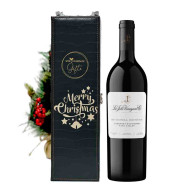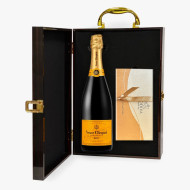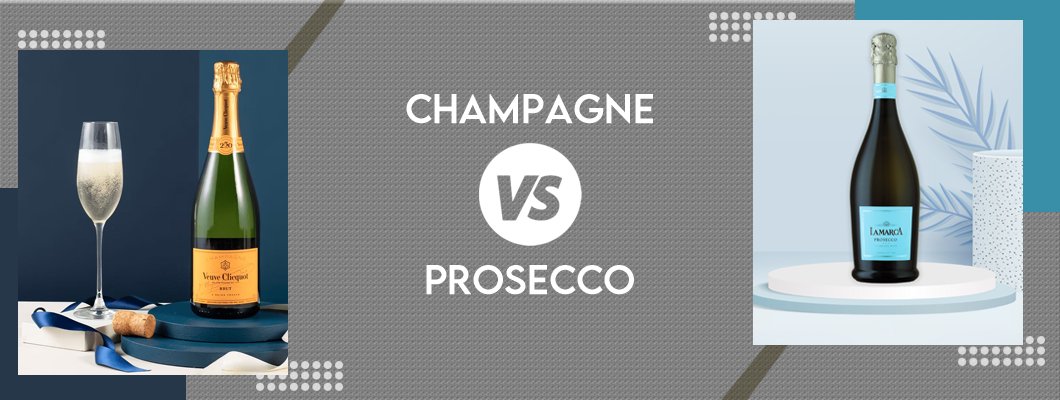
Champagne and Prosecco are two highly regarded sparkling wines, each offering a unique sensory experience inspired by the regional traditions of the places they hail from. While both are associated with festivities and good times, their origins, production methods, and flavor profiles distinguish them as distinct entities within the spectrum of sparkling wine.
In case you are also wondering what is better as a gift amongst prosecco and champagne for a certain occasion, then this blog has all you need to know about prosecco wine vs champagne.
Let's have a brief overview of the major difference and similarity between prosecco and champagne. If you are looking for a gift option for a cocktail-like situation or something lighter both in taste and on your pockets, you should opt for prosecco whereas champagne can prove to be a better choice when seeking a luxurious and elegant experience.
Now let's dig deeper and find the detailed answers to all your queries, like: Are prosecco and champagne the same thing or different, and if different, then how?
What is Champagne?
Champagne is a style of sparkling wine made specifically in the Champagne region of France and is the pinnacle of elegance and class. Champagne is crafted mainly from Chardonnay, Pinot Noir, and Pinot Meunier grape varietals, with the occasional inclusion of other approved grapes like Arbane, Petit Meslier, and Pinot Gris.
The effervescence of a champagne comes from the traditional secondary fermentation that happens in the bottle itself and is popularly named méthode champenoise. This process yields a sparkling wine of unmatched complexity with layers of fruity, toasty, and creamy palate. These timeless classics are usually created with a blend of wines from the same vintage. Know more about champagne!
What is Prosecco?
Is Prosecco a sparkling wine? Yes. Indeed, Prosecco is yet another type of sparkling wine that originates from the northeastern regions of Italy, particularly Veneto and Friuli-Venezia Giulia. Prosecco is mostly made from the Glera grape with a minimum of 85% of the total content using the Charmat process, which involves secondary fermentation in steel containers under pressure. This method preserves the wine's vibrant fruitiness and youthful energy, resulting in a crisp, refreshing palate full of citrus and floral notes.Though this approachable sparkling wine is made in the vintage style, it is usually a blend of wines from different years, thus it is preferable to drink it within the first few years of production.
Comparing the two icons of sparkling wines: Champagne and Prosecco
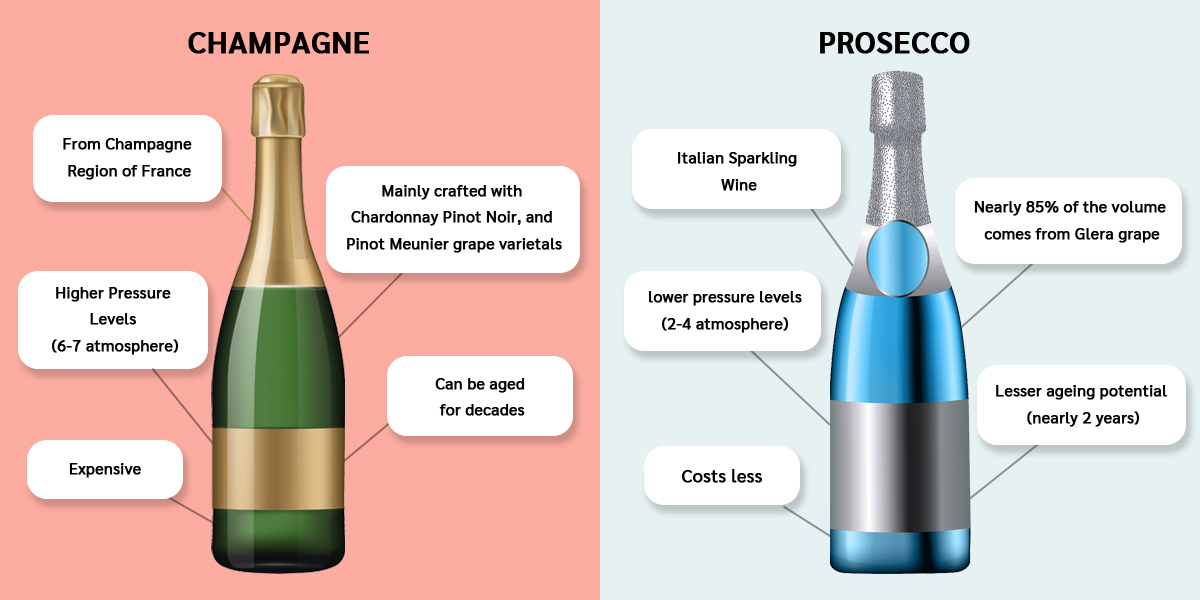
Champagne Vs Prosecco
Similarities Between Prosecco and Champagne
Despite their geographical and formational differences, one thing that unites both of these beverages hailing from different regions of Europe is their joyful effervescence, which comes from the double fermentation they both undergo. Hence, both Champagne and Prosecco provide an excellent experience with their refreshing acidity and palate-cleansing effervescence.
Difference Between Prosecco and Champagne - How are they different?
While Champagne and Prosecco both embody the essence of sparkling wine, their disparities in terroir, production method, and flavor profile offer distinct sensory experiences.
Let's have a closer look on some of the key differences between prosecco and champagne:
1. Nativity:
Champagne originates from the infamous Champagne region of France, known for its cool climate and chalky soils. Whereas a Prosecco hails from northeastern Italy, particularly Veneto and Friuli-Venezia Giulia regions which are characterized by sun-kissed vineyards and hillsides.
2. Viticulture Practices:
Champagne is primarily crafted from Chardonnay, Pinot Noir, and Pinot Meunier grapes, with occasional additions of other grape varieties whileProsecco is made predominantly from the Glera grape which makes at least 85% of the total volume, with small percentages of other approved grapes permitted.
3. Making Style:
Champagne is produced using the traditional méthode champenoise, involving secondary fermentation in the bottle. While on the other hand, Prosecco is crafted through the Charmat method, where secondary fermentation occurs in pressurized stainless steel tanks.
4. Pressure:
Champagne is typically bottled at higher pressure levels, resulting in finer bubbles and a more persistent mousse, where as Prosecco has larger bubbles and a softer effervescence as it is bottled at lower pressure levels.
5. Taste:
Champagne is known for its complex flavor profile, with notes of ripe fruits, and subtle yeastiness which often exhibits a mineral-driven character. Meanwhile, Prosecco is Characterized by its bright and fresh taste, with vibrant citrus and floral notes, offering light charm and approachability.
6. Food Pairings:
Champagne is a versatile beverage which can be paired with a wide range of foods, including seafood, poultry, cheeses, and desserts because of its refreshing acidity and palate-cleansing effervescence. Whereas Prosecco is ideal for pairing with lighter foods such as appetizers, salads, seafood, and fruit-based desserts.
7. Aging Potential:
Vintage champagnes can last for decades and even a non-vintage champagne can be kept for a good 3 to 4 years whereas a bottle of prosecco remains good for only around 2 years thus, are suggested to be consumed within a few years.
All these differences together contribute to the unique sensory experiences offered by Champagne and Prosecco, making them ideal for diverse preferences and occasions.
Champagne versus Prosecco: Key Highlights
Prosecco Vs Champagne: Price Guide
In general, Prosecco tends to be more affordable compared to Champagne, making it a more approachable choice for everyday enjoyment, casual gatherings, and for cocktails or cooking as well. Champagne, on the other hand, is often opted for special occasions and carries a higher price tag due to its prestige and craftsmanship. If you are on a budget, go for prosecco, which can be found anywhere in the range of $20 to $50, while champagne can easily cost between $50 and $200. The table below will give you a fair idea about the pricing of some premium champagnes and proseccos available online at DC Wines and Spirits:
Popular Brands of Prosecco vs Champagne Price
So, What should I Gift - Champagne or Prosecco?
If you are looking for a fruity, more approachable, and budget-friendly bottle that can be consumed shortly, go for a prosecco. For something more elegant and complex experience with a luxurious feel that can be revisited a few years down the line, champagne is the ideal choice.
So if it’s a big gathering or a fun party, add more to its liveliness with a refreshing and affordable prosecco, and for a sophisticated dinner date or an elegant event, a luxurious champagne is an ideal gift.
You can always go a step further and offer a gift basket of prosecco and champagne paired with cheese and chocolate gourmet delights or a set of flutes rather than just a single bottle. You can even buy prosecco or champagne online along with chocolate boxes, gourmet treats, flute sets, spa essentials, and much more at DC Wine and Spirits. You can even choose a hand-painted bottle for an added personal touch to your gift.
The debate over Prosecco vs. Champagne ultimately concluded that it all depends on the occasion and personal preferences. Regardless of whether it's a lively prosecco or an elegant champagne, your gift will surely delight the recipient. Hope this blog answers all your questions about how Champagne and Prosecco Made, Age, Taste.
FAQs
Are Prosecco and Burt the same thing?
Prosecco Vs Brut: Brut literally means “dry or raw." So if a sparkling wine is brut, that means it is dry with a sugar dosage of up to 12 g/L. Hence, brut is one of the most popular types of prosecco, but it is not just limited to prosecco; any sparkling wine with a sugar dosage in the given range is brut.
What's better: Cava v Prosecco?
Similar to champagne, cava also has a finer and more persistent effervescence, whereas Prosecco has a larger and lighter effervescence, making it frothy.
What's the ideal serving temperature for Prosecco and Champagne?
The ideal serving temperature for prosecco is 4–7°C (40–45°F), while champagne can be served at a slightly higher temperature of around 7-9°C (45–48°F).
Can I Use Prosecco as a Substitute for Champagne in Cocktails?
Though champagne and proseccos have completely different flavor profiles, when it comes to something as refreshing as a cocktail Prosecco can serve the purpose of providing a lively and fruit-forward alternative to traditional Champagne-based drinks.
How Long Can I Store an Unopened Bottle of Prosecco or Champagne?
An opened bottle of prosecco remains good for around 2 years, while a non-vintage champagne can be kept for a good 3 to 4 years, and vintage champagnes can last for decades.




